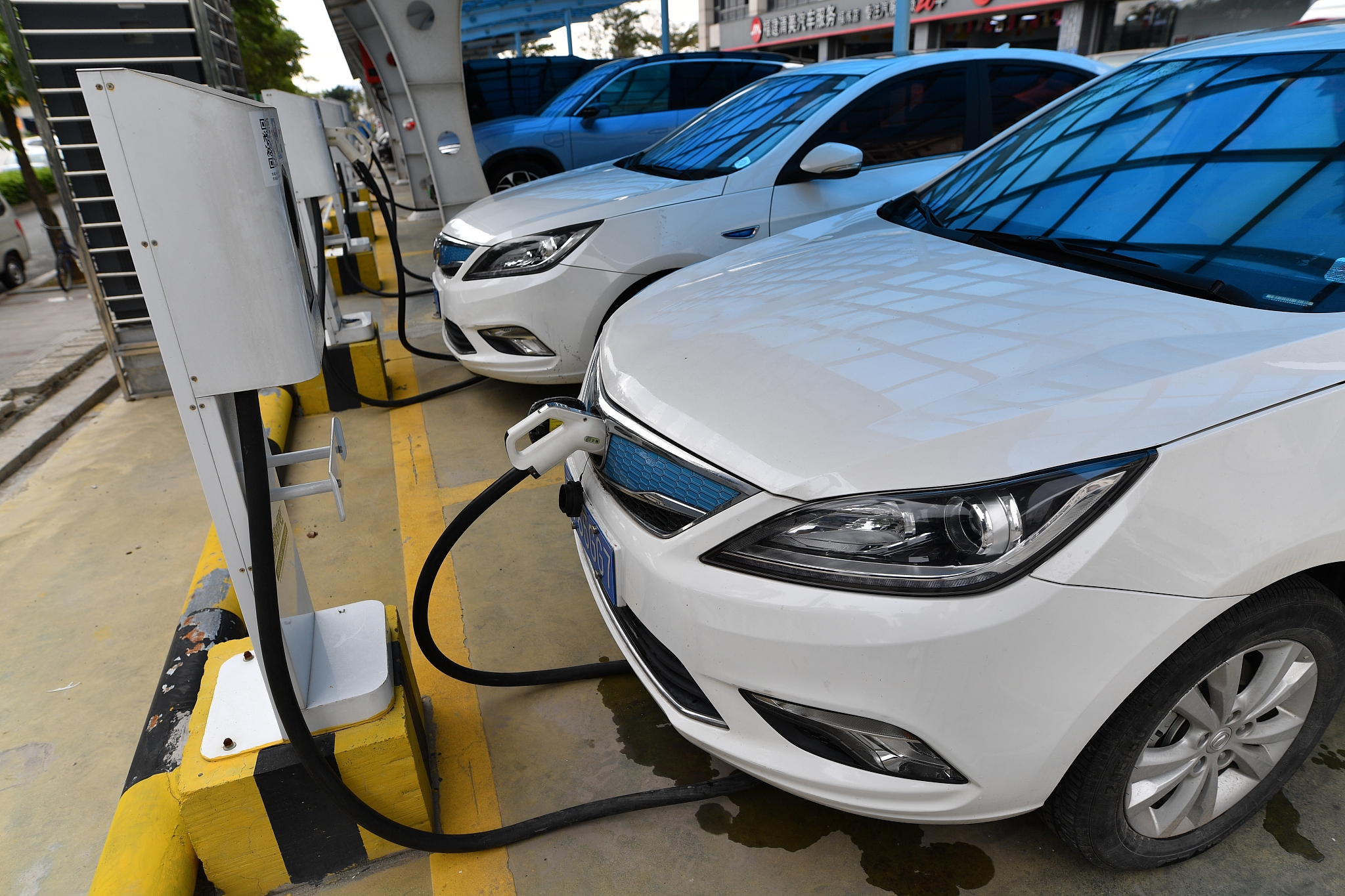
An electric car is being charged, Quanzhou City, Fujian Province, China, December 28, 2018. (Photo: CFP)
Nearly six out of 10 voters in the United States said the administration of President Joe Biden should work directly with China to address climate change, according to a survey published on Tuesday.
The poll released by the Asia Society Policy Institute and Data for Progress found 56 percent of respondents wanted cooperation with China on climate change, seeing it as more important than all other issues bar nuclear disarmament, including COVID-19.
Surveying 1,040 people in December 2020, the poll found 69 percent of voters believed if China takes more action to address climate change then the United States should follow suit.
On September 22 last year, in a message to the UN General Assembly, China announced it would strive for carbon neutrality by 2060. This marked the first time, since the Paris Agreement on climate change was reached in 2015, the country revealed its ambitious goal with a specific timestamp.
The United States and China are the world's two largest contributors to climate change and combined are responsible for 40 percent of global greenhouse gas emissions.
Biden has put climate at the heart of his domestic and foreign policy, including rejoining the global Paris Agreement and naming former Secretary of State John Kerry as the U.S. special climate envoy.
Kerry told a press conference last week that though the two countries have "serious differences", the United States would work with China on climate change. He also stressed that the U.S. would not trade "other pressing concerns to make progress on climate."
In response, China's Foreign Ministry spokesperson Zhao Lijian said China and the U.S. share broad common interest for cooperation and China is ready to cooperate with the U.S. and the international community on climate change, but he stressed that cooperation on a specific area cannot be separated from bilateral relations as a whole.
"No one should imagine they could ask China to understand and support them in bilateral and global affairs when they blatantly interfere in China's domestic affairs and undermine China's interests. We hope the U.S. can create favorable conditions for coordination and cooperation with China in major areas," Zhao said.
Despite the complicated dynamics, the nations' "mutual interests in addressing climate change" mean they should eventually find a way forward, said David Waskow, director of the international climate initiative at the World Resources Institute.
"The case is that it's going to be to the economic benefit of both countries to take climate action," he told the Thomson Reuters Foundation, citing new jobs, reductions in emissions and resilience against the impacts of climate change.
In the survey, U.S. voters were particularly supportive of cooperation on clean energy technologies, with 52 percent saying partnering with China to increase its development would be beneficial to the U.S. economy.
Through the cooperation, each will benefit from innovations in areas from electric vehicles to clean hydrogen, Waskow said.


